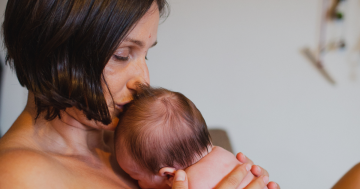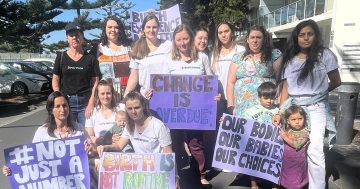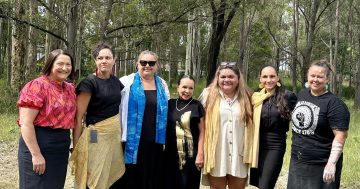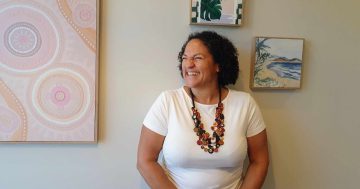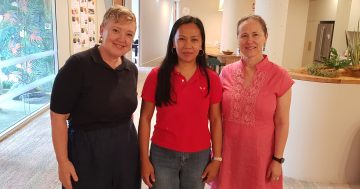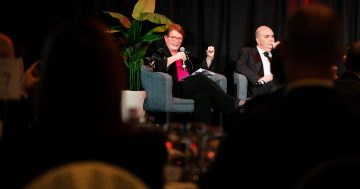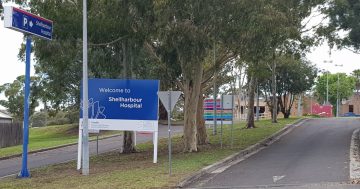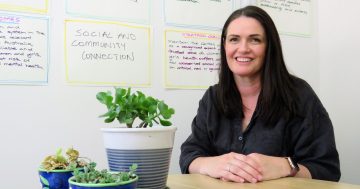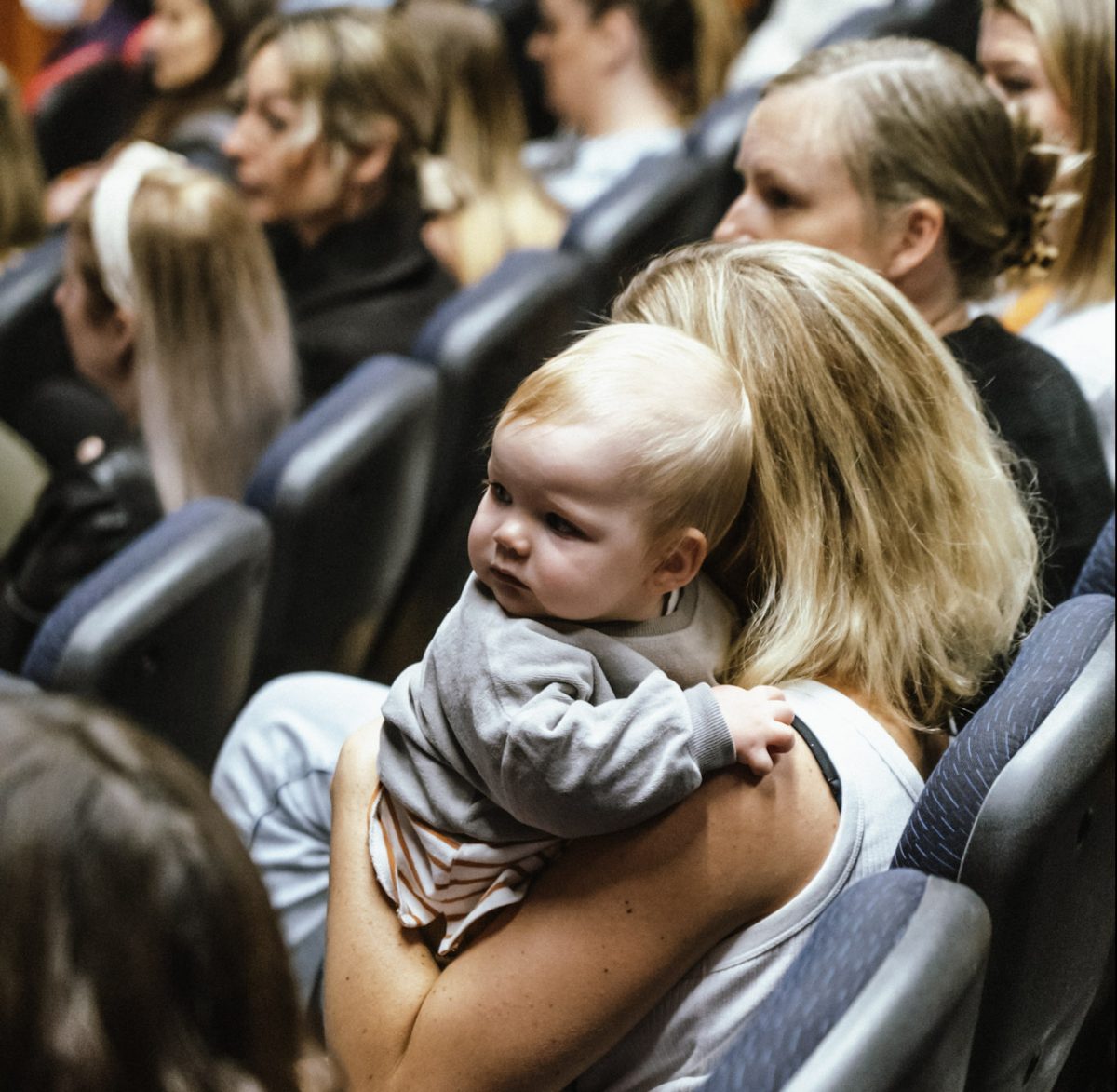
Parents and health professionals joined together to address birth trauma in the region. Photo: Billie Aye.
Illawarra mums, bubs and healthcare professionals have united to share experiences and expertise around birth trauma in a bid to create meaningful change in our hospital system.
Hundreds attended the event by Better Births Illawarra to hear stories from women who had suffered and learn about the possible solutions and strategies that need to be implemented.
The group’s president Giselle Coromandel said it was a powerful experience to have such a diverse group of people contributing to this important issue.
“We had something like 40 per cent of the audience were health professionals and 20 per cent of that were midwives, we had physiotherapists, psychologists, psychotherapists, occupational therapists, so a lot of allied professionals coming to learn,” she said.
“All of those people play such an important role in influencing and contributing to a change where more women have positive birth experiences and not negative ones so to have that cross section is really powerful.”
Damning statistics show that a third of women are experiencing trauma during their birth experience and midwife Fiona Reid said society had normalised the idea of suffering during the process.
“When we know that one in three women are leaving feeling disempowered, broken, physically altered, continuing in pain for months or years following giving birth,” she said.
“Birth shouldn’t be like that and we have staff who feel complicit in trauma and the profession shouldn’t have to exist like that.”
Now there’s a New South Wales Parliamentary Inquiry underway to help highlight the issue and determine what is required to reduce harm.
Chair of the inquiry committee Emma Hurst said many members of parliament weren’t even aware that birth trauma was a problem.
“We can’t have a situation where women don’t feel safe to give birth inside a hospital and we need to make sure that the funding is being allocated in the right areas, that the broader systemic issues are being dealt with and we need to look at legislative changes as well as necessary.
“This is a complex issue and each women’s individual experience is so different, so unfortunately it’s not going to be a really simple answer,” Ms Hurst added. “I expect that this inquiry is going to see a huge number of recommendations to the Government and even then we’re only going to be taking steps forward to actually fixing this.”
Bega MP Dr Michael Holland has been working in the sector for four decades and said that the impact of the birthing experience extended well beyond the birth itself, both physically and mentally.
“Some trauma physically gets better in six weeks, some trauma is more complicated than that, but psychological trauma can be a lifelong trauma, so I think it’s most important that we address that,” Dr Holland said.
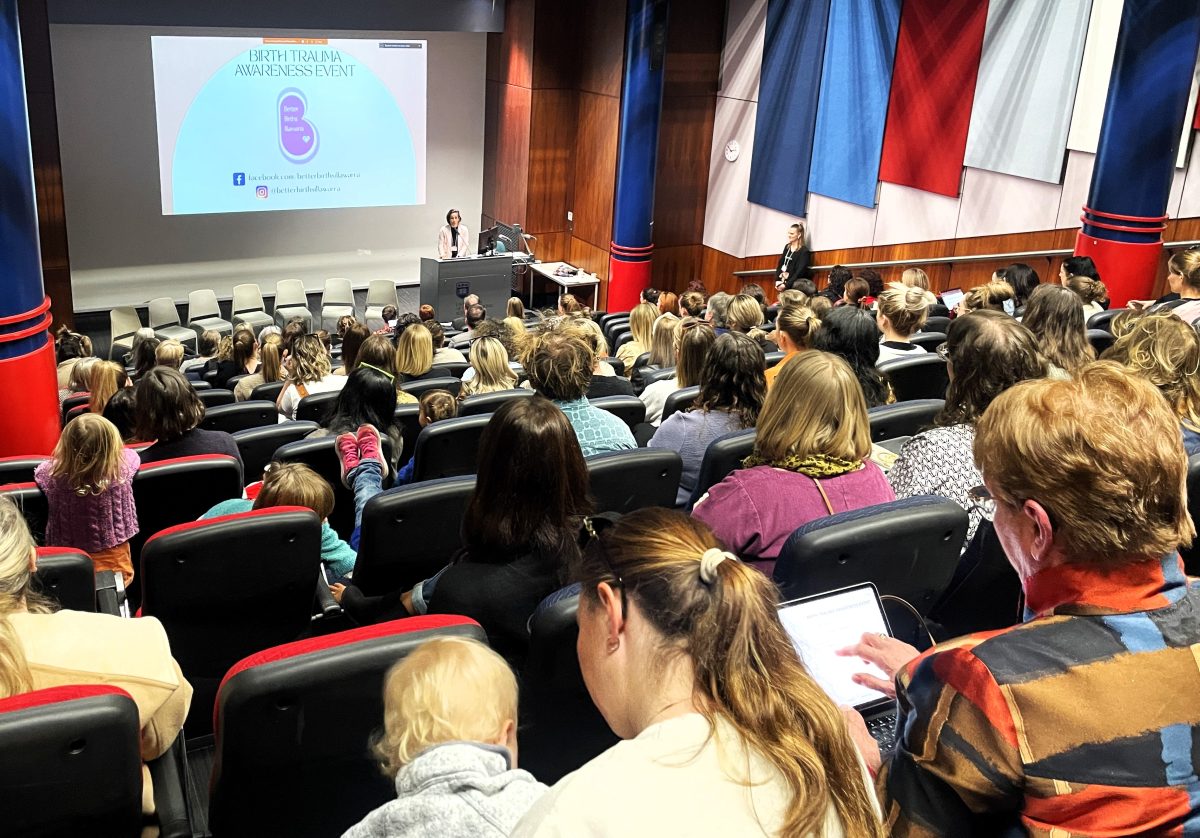
Better Births Illawarra are advocating for the region to expand its Midwifery Group Practice program. Photo: Keeli Royle.
“Dealing with women that also have a pre-birth risk factor for that so if there’s an anxiety, depression, fear, that we recognise that and make a plan for that birth and for afterwards as well.”
And although the recommendations will likely address a broad range of issues with a number of solutions, Midwifery Group Practice is believed to be something available right now which could reduce harm and improve outcomes.
“Midwifery group practice does not replicate medicalised model, it establishes relationship and therefore it establishes trust,” Ms Reid said. “And when you have trust and relationship you have better communication and when you have better communication you have women who are understood, listened to and engaged with authentically and on an individual basis throughout their care in maternity services.
“It should be the dominant model of care in any public hospital,” she added.
But according to initial research by Better Births Illawarra only around 30 per cent of women who apply for Midwifery Group Practice in Wollongong actually secure a place on the program.
Illawarra Shoalhaven Local Health District Chief Executive Officer Margot Mains said that she hoped to expand the program in our hospitals.
“There’s been discussions going on so it’s looking internally about what we can do ourselves, but also discussions about other parties about how we can actually develop it further,” she said.
“We’re just in the throes of hopefully coming to some final conclusions around that. There is no doubt in midwifery group practice and continuity of care I get a lot of really positive feedback and our aim is to increase it.”
Better Births Illawarra have been advocating for the program to be more accessible for almost seven years and want a firm commitment on a timeframe and budget.
“We don’t expect it to quadruple overnight, but we have seen other hospitals in our state that are publicly funded expand significantly,” Giselle said. “And it’s going to be a matter of will from the health services perspective to get us there.”
The community can have their say on the inquiry through the NSW Parliament website.
Submissions close 11 August.









